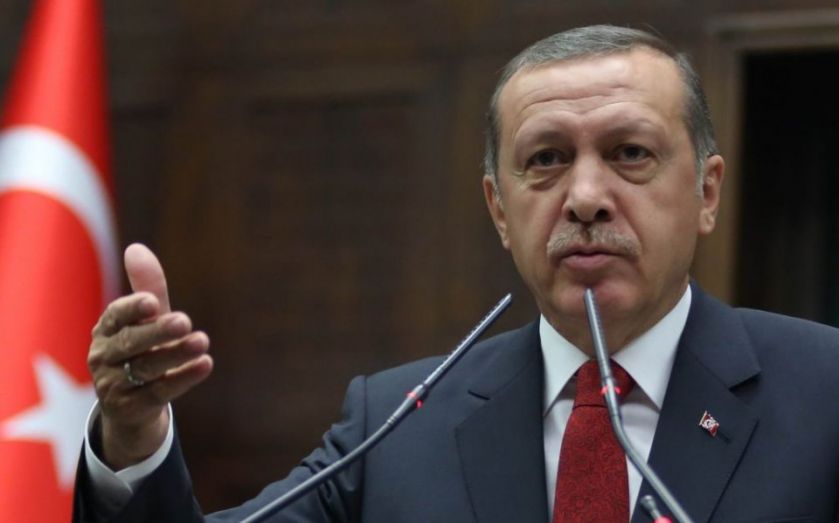Why politics will dominate 2015: Losers and winners in this maddening new era

When I started my political risk firm in 2006, about one-third of my opening pitch was simply arguing that political risk matters to often highly-sceptical executives, who wondered why they were wasting their time talking about Middle East politics rather than making money. Suffice it to say, I have now been forced to entirely re-write my speech, for everyone knows that political risk matters – and matters fundamentally – if both businesses and governments are going to thrive in this maddening, fascinating new era we find ourselves in.
And 2015 will make this only more apparent. My major prediction for the New Year is that 2015 will be the year of political risk, when mastering the geopolitics and politics of the world will separate the successful from the vanquished.
At present, there are three global pressures bearing down on all countries – the end of cheap money in the US, the plummeting of the global oil price, and the tensions building within the Eurozone. Given these pressures, correctly assessing what countries are doing under the hood – what goes on in their specific political cultures and specific political circumstances – will go a long way towards working out who will win and who will lose in 2015.
First, the US Federal Reserve has finished its QE taper and is now preparing to raise interest rates; no longer does the Fed print billions a month to bolster an American economy in a semi-coma. Now, with the US having grown at a white hot annualised rate of 3.9 per cent in the third quarter, such stimulus is unnecessary. In essence, America is already tightening global monetary policy, and this shift is bearing down like a freight train on emerging markets, used to easy money flowing to them in search of higher yields.
With the party over, political risk is the necessary compass to guide us through assessing which of the emerging markets will weather the storm, and which will sink. For example, Indonesia’s President Jokowi, a shy but honest populist, who triumphed over establishment candidates in 2014 in a close election, is already shifting resources away from wasteful fuel subsidies and is instead concentrating on remaking his country’s education system, so his sprawling island nation is fit for purpose in the new era. Indonesia, for its hard-won political stability, is worth taking a bet on.
Not so President Erdogan’s Turkey. Having moved mountains a decade ago, when he was early in his term as Prime Minister, Erdogan now fulfils the definition of a tragic classical Greek Hero: he is a man who has outlived his time and his usefulness. Obsessed with his enemies, increasingly erratic and dictatorial, and seeming to have little to no interest in further structural reform, the Turkish President is ripe for a fall at the hands of the capital markets, particularly given Turkey’s massive current account deficit. With Erdogan striding across the Bosphorus like a titan, he is unlikely to be replaced any time soon; as such, Turkey may well go down with its erratic semi-authoritarian leader.
The tumbling price of energy is another global pressure on producers, used to the days of wine and roses with oil at $100 a barrel. Horribly run and politically brittle Venezuela is in the cross hairs, as President Maduro amounts to former President Chavez without the charisma. There were already significant riots on the streets there this past year; with Brent crude hovering around $60 (and Venezuela needing oil to be at $126 to balance the books), look for more.
Lastly, the European countries shackled to the mast of the euro must be looked at far more closely in 2015 in terms of political risk. France is seemingly incapable of renewal, with economy minister Emmanuel Macron’s efforts small beer, as they don’t include labour market reform of any kind. Even so, his initiatives are somehow outraging much of the French left. In Spain, the two main parties are losing out in the polls to ultra-leftist newcomer Podemos; the governing centre-right People’s Party is seen as corrupt, and the centre-left Socialist Party is seen as incapable. In power, Podemos would spend money like a drunken sailor, precipitating another euro-crisis.
And I haven’t even mentioned the looming Greek presidential election crisis.
Wherever we look, knowing a country’s politics, its history, culture, strengths and weaknesses, as well as its political personalities, is the only way to make our way through the coming labyrinth. In other words, we are all going to have to focus a whole lot more on political risk to make sense of the world in 2015.
Dr John C Hulsman is senior columnist at City A.M. He is a life member of the Council on Foreign Relations, and author of Ethical Realism, The Godfather Doctrine, and Lawrence of Arabia, To Begin the World Over Again. He is president and co-founder of John C Hulsman Enterprises (www.john-hulsman.com), a global political risk consultancy, and available for corporate speaking and private briefings at www.chartwellspeakers.com